Best Non Fiction Must Reads for Men
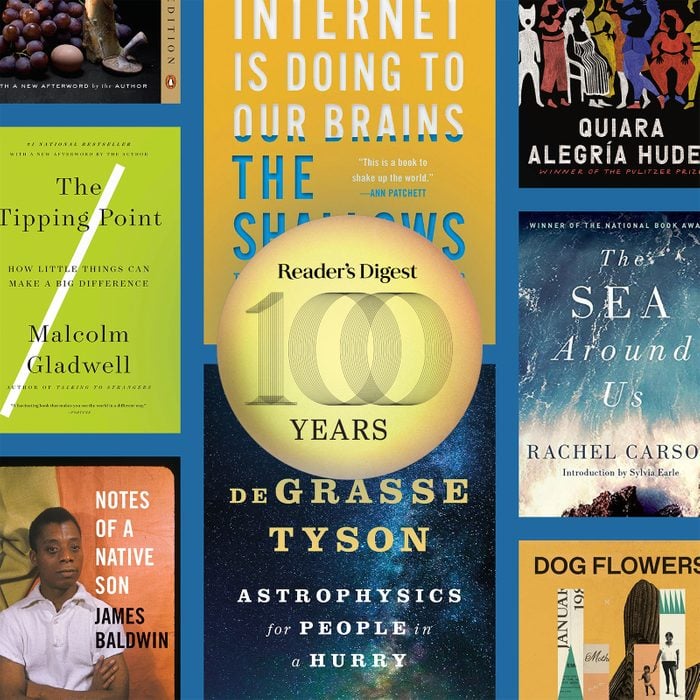
Popular nonfiction books that are as fascinating equally fiction
It's easy to become lost in a practiced book, especially if yous're reading one of the best fiction books of the year, a sizzling romance novel, or some seriously good historical fiction. But the all-time nonfiction books can equally capture your attention and depict y'all into their worlds. These works can take many forms and focus on anything and everything—from true crime, science, history, and travel to gender, race, politics, and economic science. They may offer a comprehensive view of a topic, provide essential tips and tricks that brand your life easier, or even modify the way you lot look at the world. But they all take one thing in common: Their authors bring the subjects to life and make them incredibly compelling.
Hither, you'll find the best nonfiction books of all time—the ones that will really brand you recollect. Many of these titles were culled from the annals of Pulitzer, the National Book Critics Circumvolve, the National Book Foundation, and influential all-time-seller lists. Some are classics that have a lasting legacy. Some are important works that assist u.s.a. sympathize humanity. Some accident us away with their beautiful storytelling. And some are just plain good reads—some of the best books of all fourth dimension, in fact.
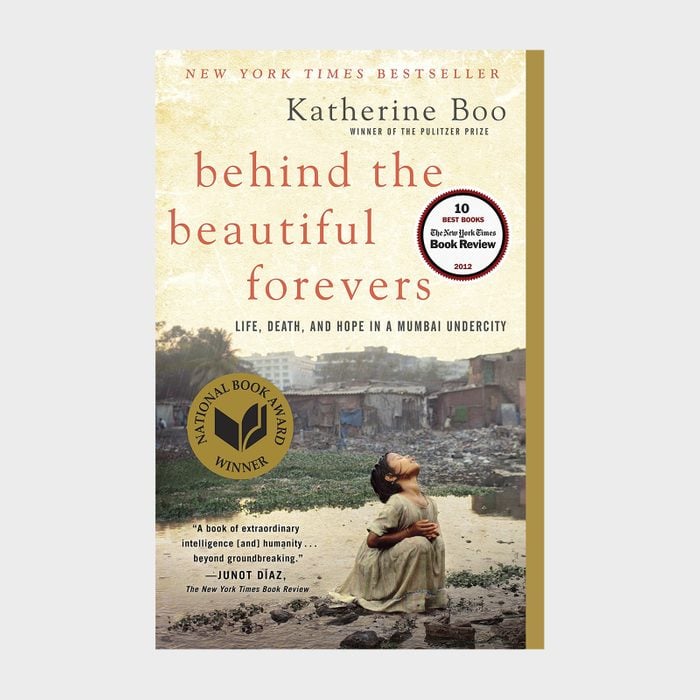
1. Behind the Beautiful Forevers: Life, Expiry, and Hope in a Mumbai Undercity by Katherine Boo (2012)
What does information technology hateful to strive for a ameliorate life when everything is against you? How exercise nosotros maintain our humanity in the face of poverty and longing? Boo delves into the lives of the families who live in the Annawadi slum, squatting on forgotten land endemic by the Sahar International Airport in Mumbai and striving to make their lives amend. As India transforms and modernizes, those who've resided in the traditionally "lower" castes have a glimpse of up mobility and what it takes to get at that place. This beautifully written masterpiece was a national best seller, the winner of the National Volume Award, a finalist for the Pulitzer Prize, and one of Time's Best Books of the Decade. Boo herself won a coveted MacArthur "Genius" Grant for her work. Behind the Beautiful Forevers rightfully earns its spot on this listing of the best nonfiction books—it's one of the books everyone should read in their lifetime.

2. Freakonomics: A Rogue Economist Explores the Hidden Side of Everything by Steven D. Levitt and Stephen J. Dubner (2005)
The concept of Freakonomics looks at a diversity of behavioral and social phenomena through an economic lens. This best seller, which sold more four million copies worldwide, spawned numerous other books and a podcast that changed the style nosotros await at the world. The authors discuss the everyday workings of everyday things, like how to catch a cheater or why your new car is worth and so much less the moment you bulldoze information technology off the lot. With a following of readers from the New York Times, economist Levitt received a wide range of queries from both ordinary people and the likes of a Bout de France champ and the CIA. Here, with the help of Dubner's humorous writing, he provides the answers to life's somewhat-pressing questions.
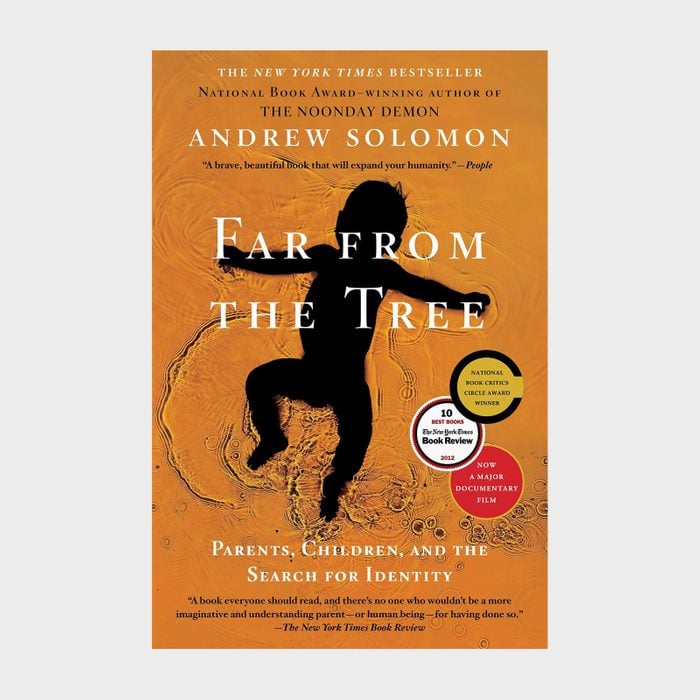
3. Far from the Tree: Parents, Children, and the Search for Identity past Andrew Solomon (2012)
The winner of more than a dozen awards, including the National Book Critics Circle Honour and Books for a Better Life Award, Solomon'south piece of work draws on a decade of inquiry interviewing more than than 300 families. What he found is that when children are faced with adversity or exceptionality, their experience of beingness dissimilar within their families is universal. And he raises this question: Whether a child is deafened, gay, autistic, or genius, do we strive to enhance our kids to be similar us, or do we nurture their differences and allow them to find a community of their ain?
As Solomon notes, while the apple generally doesn't fall far from the tree, in these cases, they are "apples that accept fallen elsewhere." In family afterward family, Solomon establish that love triumphs and that happy families who strive to take these children are happy in many other ways. Always wonder if you're a toxic parent? Run across if y'all have any of these bad parenting traits.
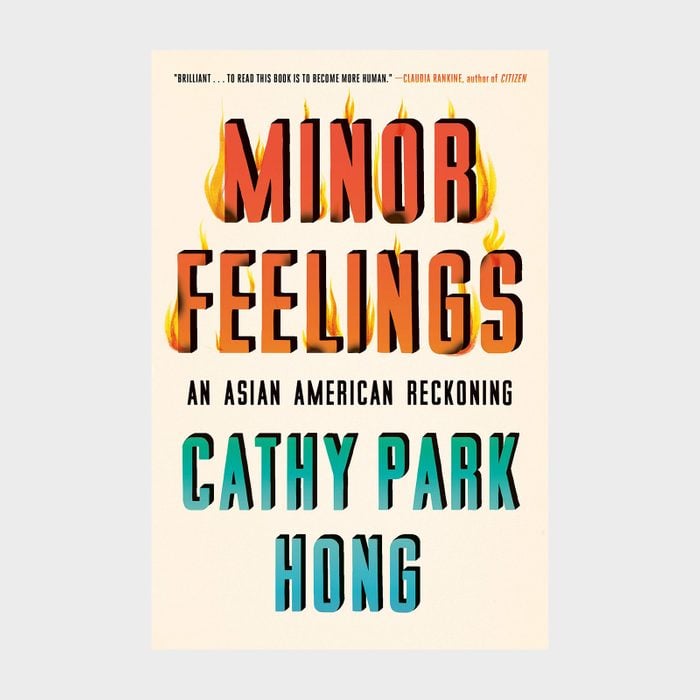
4. Modest Feelings: An Asian American Reckoning by Cathy Park Hong (2020)
Published mere months after the discovery of the novel coronavirus and just ahead of the resulting surge of anti-Asian violence and othering that Asian Americans experienced in its wake, this is an essential read for the moment we're in. Korean American essayist Hong vividly portrays the "minor feelings," like shame and low, that are often part of the Asian American experience. Part memoir, function cultural criticism, Hong's book touches on the all-too-mutual dismissal of these feelings in conversations nigh race and immigration. Minor Feelings resonated in a major way: Information technology'south a New York Times best seller, National Book Critics Circle Award winner, Pulitzer Prize finalist, and soon to be a TV series.
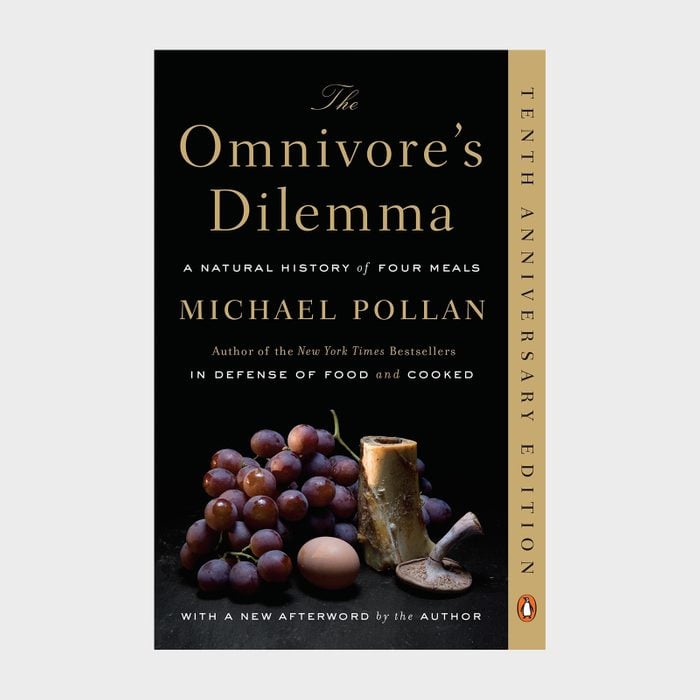
5. The Omnivore's Dilemma: A Natural History of 4 Meals by Michael Pollan (2006)
Named one of the ten best books of 2006 by the New York Times and the Washington Mail, Pollan'south James Beard Laurels–winning book was also a finalist for the National Book Critics Circle Award. The Omnivore's Dilemma was i of the first critically acclaimed books to look at how we swallow in terms of our species' survival—both in terms of the health of our families and of the planet—answering the question, "Where does my food come from?" It's essential reading for anyone concerned with the choices they make nearly what goes into their bodies.

6. Fast Food Nation: The Nighttime Side of the All-American Meal by Eric Schlosser (2001)
Xx years after its initial publication, Eric Schlosser'south engrossing exposé on the fast-food industry is as relevant as ever. A New Yor thou Times best seller and one of Time'due south 100 All-time Nonfiction Books, Fast Food Nation reveals more than what's in that burger you're eating. Americans spend more than money on fast food than they exercise on new cars and on whatever given day, one-quarter of American adults visit a fast-food establishment. The manufacture, writes Schlosser, helped transform the American diet as well as "our landscape, economy, workforce, and pop culture." It has, in short, become inescapable. Schlosser, an adept storyteller, believes people should know where their food comes from, how information technology'south made, and what it's doing to their community.
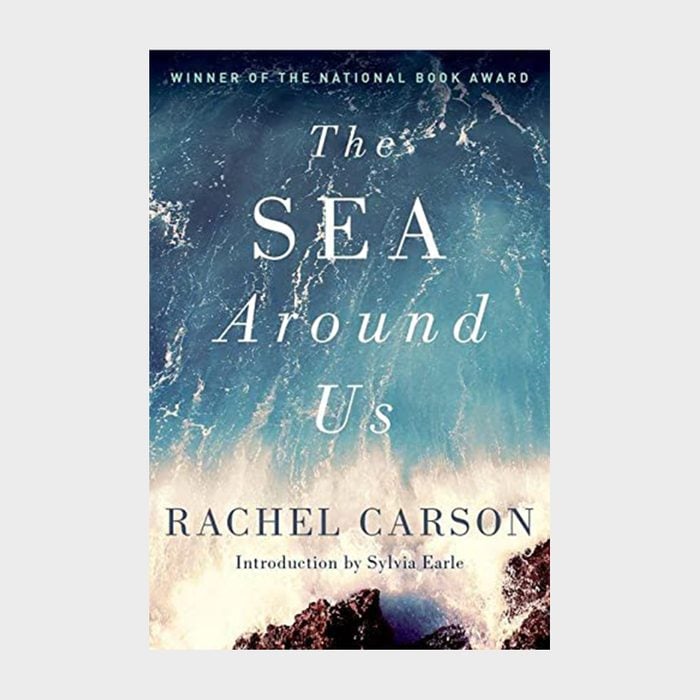
7. The Body of water Around Us (1951) and Silent Spring (1962) by Rachel Carson
The Sea Around U.s., an overnight best seller and winner of the National Book Accolade winner in 1952, combines Carson's thorough research (much of information technology from Earth War II–era submarine warfare) with her poetic prose. In wondrous detail, she describes the ocean floors and how they were mapped, how islands are born, and how tsunamis remind us of their destructive power. A decade later on, Silent Spring, a precursor for environmental activism, revealed the devastating environmental and man toll of excessive pesticide utilize, how pesticides contaminate and poisonous substance our planet, and how those backside the indiscriminate employ of pesticides turn a profit from it. Carson's classic book spurred changes in legislation that impact our air, h2o, and planet to this day. Both books are as essential in 2022 every bit when they were first published.
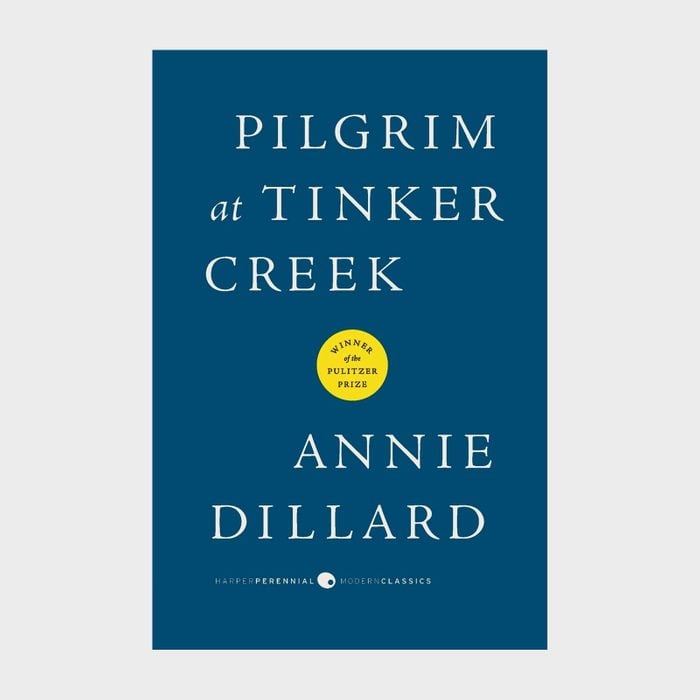
viii. Pilgrim at Tinker Creek past Annie Dillard (1974)
Dillard's book tells of a year's exploration in Virginia's Roanoke Valley, where Tinker Creek runs. In addition to capturing the beauty and horror of nature and the creatures that inhabit it through the seasons, it'southward a "relate of solitude," according to the Atlantic (though Dillard continued to live at habitation with her husband while she walked nearly the suburban woods). Winner of the Pulitzer Prize in 1975, this book placed Dillard among the best nature writers, in the vein of Henry David Thoreau and John Muir. Her lovely writing captures the magic of beingness alone in nature. FYI, this isn't a strict, factual account of her fourth dimension at Tinker Creek only instead, equally she once noted, "a novelized volume of nonfiction." Pilgrim should be the first of many Dillard books y'all read. These cute nature quotes will put y'all in the right mindset earlier curling up with this excellent volume.

nine. How the Give-and-take Is Passed past Clint Smith (2021)
Smith, a writer forThe Atlantic, provides a frank account of just how engrained the legacy of slavery is in the United states in this masterwork. Named 1 of the New York Times's Best Books of 2021 and one of Time's Best Nonfiction Books of 2021,How the Word Is Passedexamines the many monuments, locations, and even whole neighborhoods that are inexorably tied to American slavery, whether overtly or less so, and how we as a country can and should motion frontward armed with that knowledge. It's ane of many new books past Black authors you should know nearly.
10. G Coulee by Jason Mentum (2017)
Nonfiction books aren't but for grown-ups. This volume, targeted at readers ages seven and up, is far from a dry national landmark explainer for kids. It boasts all sorts of impressively illustrated materials, like a fold-out panorama and a map. With its thorough rundown of the canyon's wildlife and geology, it's an specially bang-up choice for kids interested in science and nature. For more impactful reads for the younger set up, bank check out these children's books about diversity.
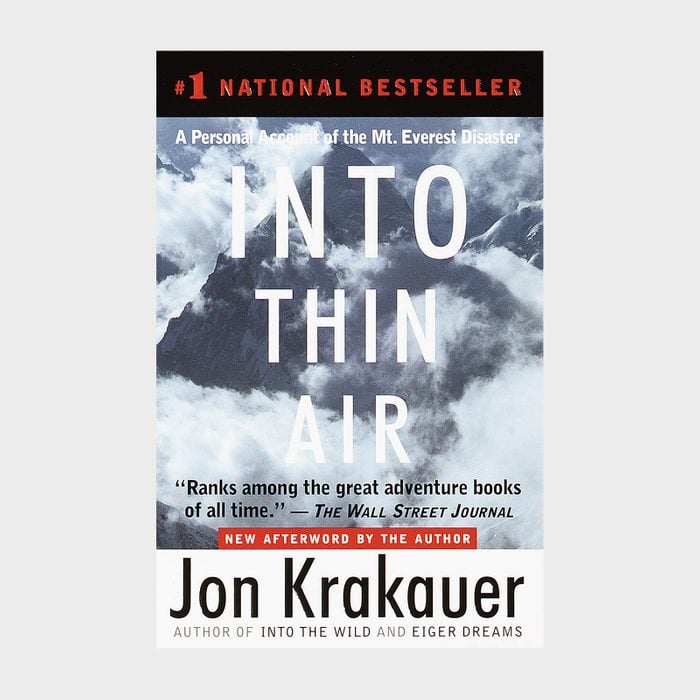
11. Into Thin Air: A Personal Account of the Mt. Everest Disaster past Jon Krakauer (1997)
This riveting business relationship of the 1996 disaster on Mountain Everest that left five people expressionless is Krakauer's try to provide insight into what went incorrect and examine his own culpability. A finalist for the Pulitzer Prize in 1998 and a number ane national best seller that sold more than two million copies, it ranks "amongst the great adventure books of all fourth dimension," according to the Wall St reet Journal. If you lot're not familiar with the story, here's the Reader 's Assimilate version: Krakauer was sent on the expedition by Outsi de magazine to embrace a guided ascension with seven other clients. While at the meridian, a rogue tempest blew in, ultimately killing iii climbers from iv expeditions and claiming the lives of three more than within the calendar month. This is an engrossing read, fifty-fifty 30 years after that fateful climb. Cheque out the best biographies y'all should have read by at present.
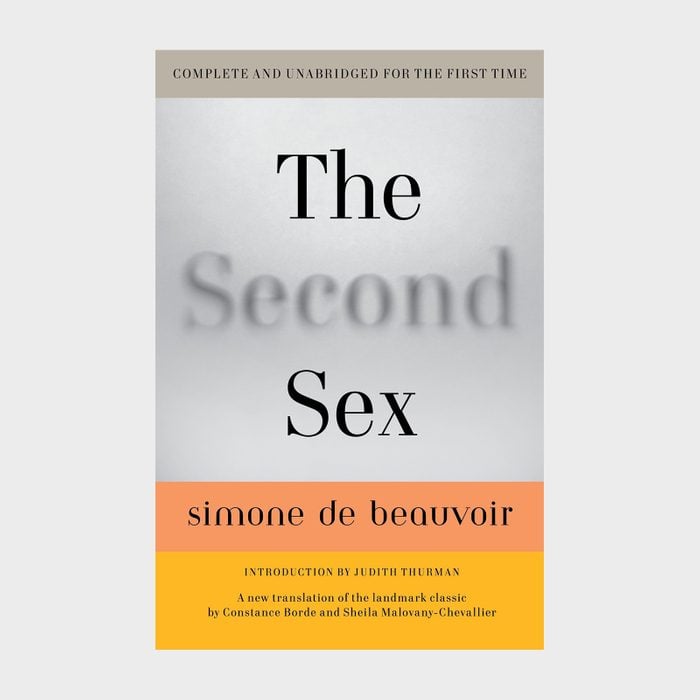
12. The Second Sex by Simone de Beauvoir (1949)
This seminal text chronicles the handling of women throughout history, particularly the imbalanced gender roles. And though it was published more than lxx years ago in France, de Beauvoir's exploration of women'due south objectified status, their "otherness," and their absolute identity only in relation to men resonates with mod Americans. While her meticulous research does point to "essential" differences between men and women, she does not uncover a rationale for female inferiority, something women still grapple with today. Here are more feminist books every woman (and man) should read.
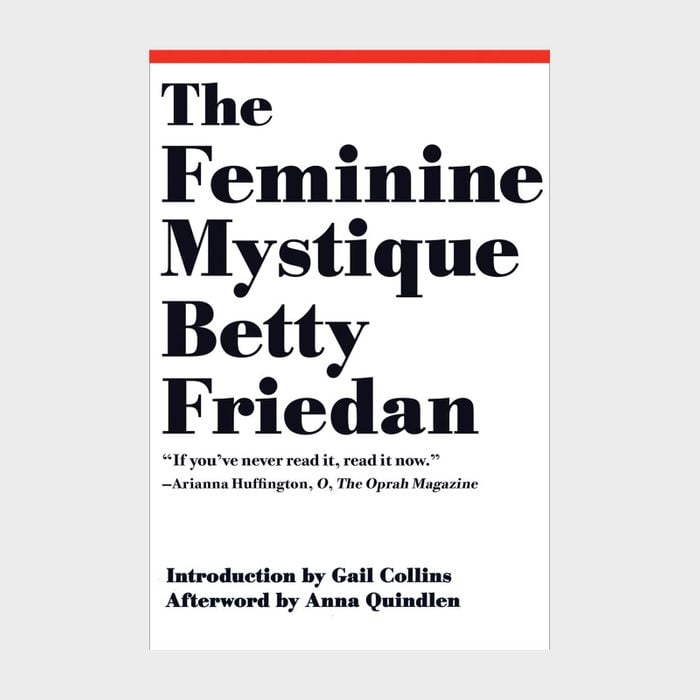
13. The Feminine Mystique past Betty Friedan (1963)
Friedan'southward book criticized the idea that women could only find fulfillment through homemaking and child-rearing and that their identities were express to "happy housewife" or "mother." More broadly, she explored the thought that these widely held beliefs made women themselves retrieve they had no intellectual value outside the home, which ultimately served to keep them there. Friedan has been credited with sparking second-moving ridge feminism, which focused on issues of equality and discrimination, and this volume was named equally one of the Library of Congress's Books That Shaped America and one of Time magazine'due south 100 All-time Books of All Time. Here are more than great books written by female authors that people of all genders can savour.
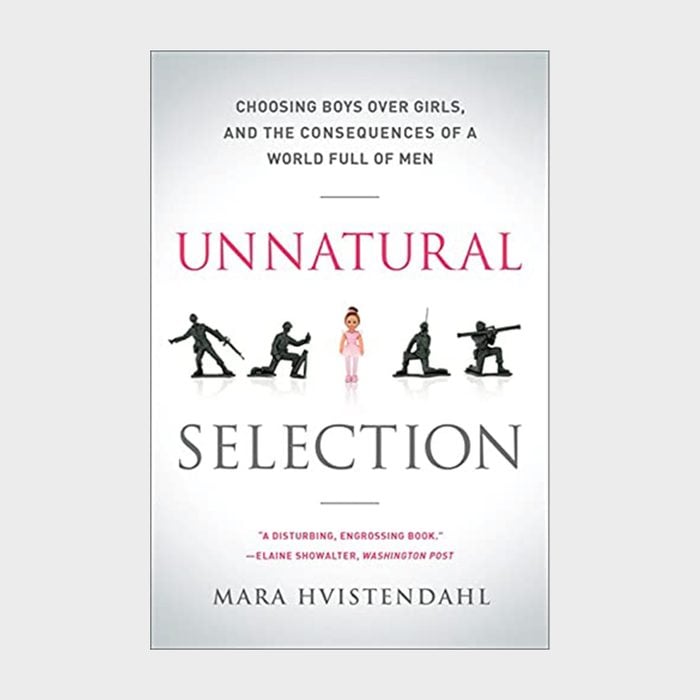
14. Unnatural Selection: Choosing Boys Over Girls, and the Consequences of a World Total of Men past Mara Hvistendahl (2011)
A finalist for the Pulitzer Prize and the Los Angeles Times Book Prize, this impeccably researched nonfiction book shows how the epidemic of selecting for boys has skewed the natural sex ratio (of 105 boys to every 100 girls) for the unabridged world. What started as immediate observation of Communist china'due south "missing" girls led to like observations in other countries. Only the inquiry led across one-child policies and orphanages overrun with girls to an even darker secret, including in the Due west, that involves sorting sperm and selective abortion. Hvistendahl warns that past condemning men to singlehood, we're creating a world that will be dominated by male violence, prostitution, and sexual predation.
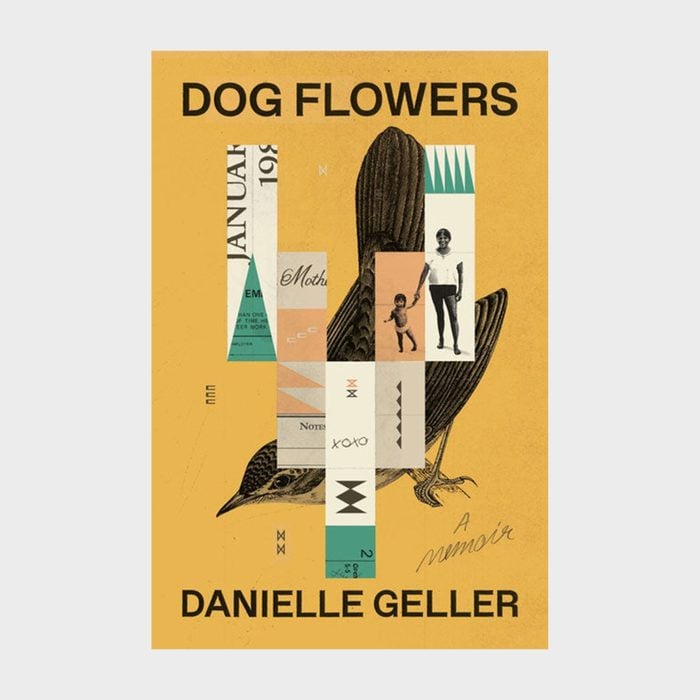
xv. Dog Flowers: A Memoir by Danielle Geller (2021)
Combining images and text, Domestic dog Flowers tells Geller'south personal story. She writes of the loss of her mother to alcohol withdrawal and the journey she took to acquire more than about her mother'southward life. The search takes her to a Navajo reservation, her female parent's quondam habitation, where an uneasy reunion and revelations—equal parts hopeful and heartbreaking—await. A cute volume past a Native American writer,Dog Flowers explores themes of addiction, family, and community.
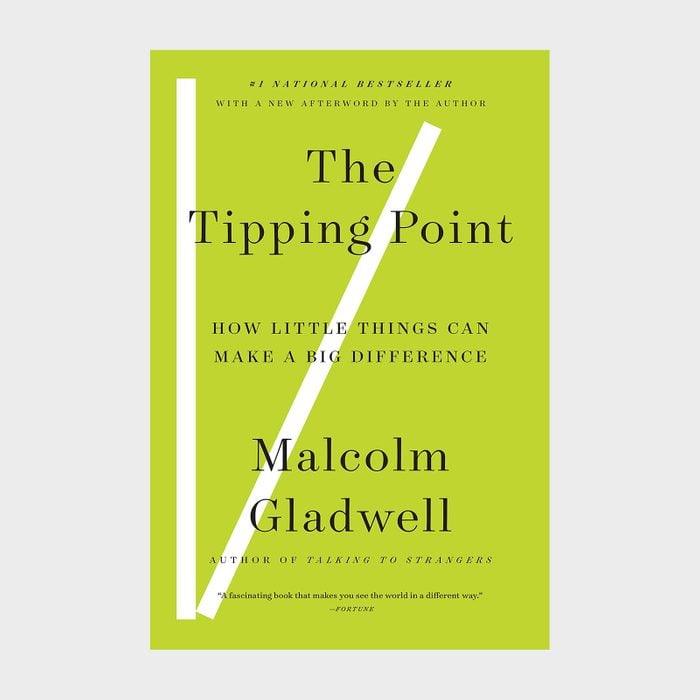
16. The Tipping Point: How Little Things Can Make a Big Difference past Malcolm Gladwell (2000)
Both The Tipping Signal and Glimmer: The Ability of Thinking Wit hout Thinking are essential Gladwell reads. Xx years ago, in The Tipping P o int, he laid out what would today exist called influencing: that singular moment when an idea becomes a trend, both in business and in human beliefs. In exploring how something small can blow up, he as well delved into how we tin can use it to bear on positive modify. In his 2d international best seller, Bli nk, he turns the lens inwards and looks at how we brand decisions and how to block out the racket and focus on the essentials. Why are some decisions good while others not? And why, he asks, are some people mostly amend at making them than others?
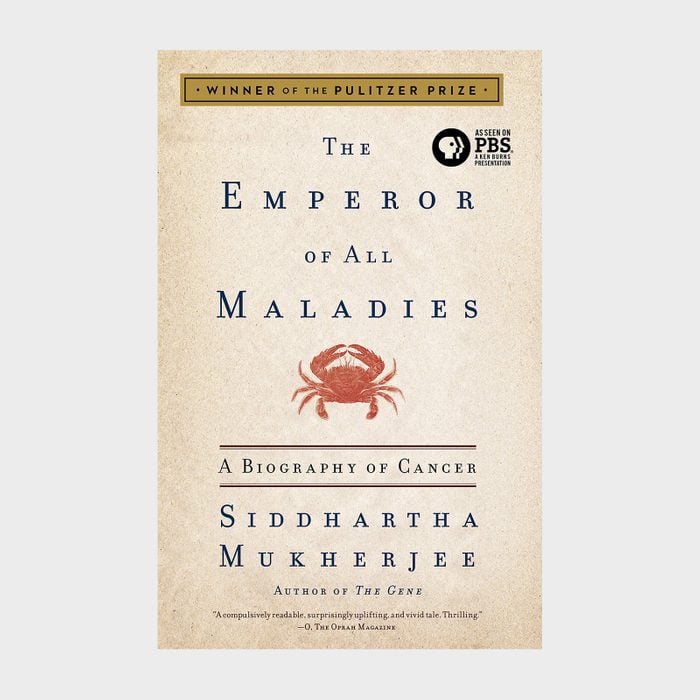
17. The Emperor of All Maladies: A Biography of Cancer by Siddhartha Mukherjee (2010)
Mukherjee, an oncologist and researcher, tells the gripping story of cancer and how it has affected human lives for thousands of years. He recounts the discoveries and victories besides as the setbacks and adversities. The volume won the Pulitzer Prize in 2011, for which the jury called it "an eloquent enquiry, at once clinical and personal." It was also a finalist for the National Book Critics Circle Award and became the subject of a Ken Burns documentary on PBS. It'south a biography in the true sense of the discussion—an intimate look inside the "heed" of cancer in order to empathize and demystify it—and Mukherjee raises the ultimate question: Is cancer's demise in our future?
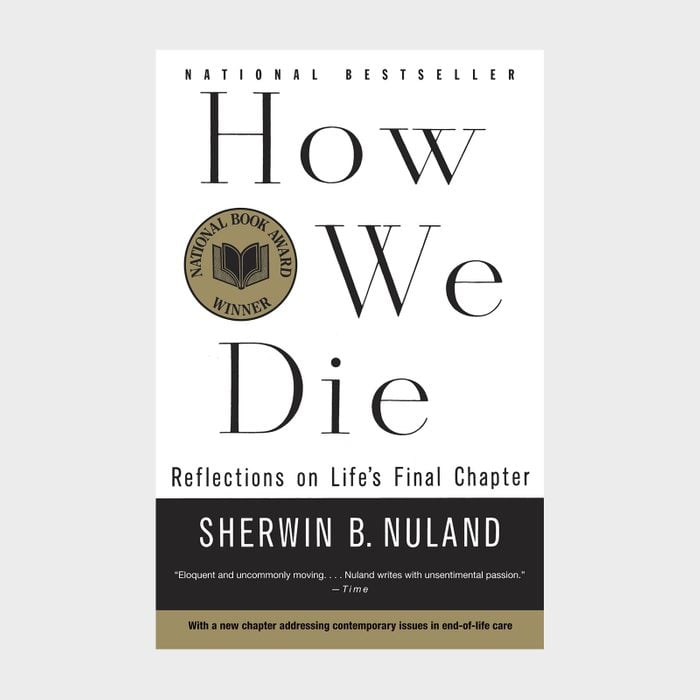
eighteen. How We Die: Reflections on Life's Final Chapter by Sherwin B. Nuland (1993)
The one matter we all have in mutual is decease. Nuland, who was a clinical professor of surgery at Yale University, attempts to demystify the procedure of dying by presenting information technology in its biological and clinical reality so that nosotros can deal with what frightens u.s.a. the almost. To illustrate, he chose six of our nearly mutual disease categories because they stand for "sure universal processes that nosotros volition all experience." If we know the truth almost decease, he writes, nosotros can prepare for it with less fear. Winner of the National Book Award in 1994, a finalist for the Pulitzer Prize, and a nominee for the National Book Critics Circle Award, it'south a moving account of what information technology is to die our own unique deaths.
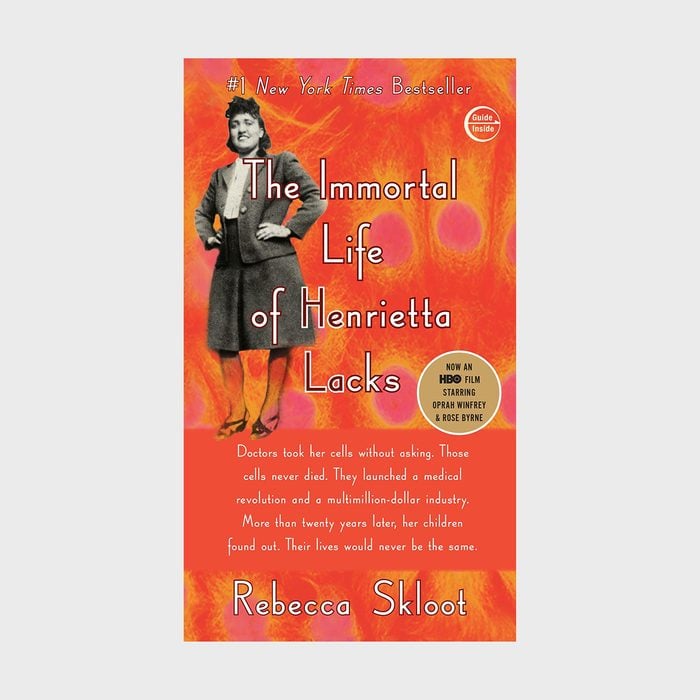
nineteen. The Immortal Life of Henrietta Lacks by Rebecca Skloot (2010)
When Henrietta Lacks was dying of cervical cancer, her cells were taken without her knowledge or consent. Those cells, called HeLa, are however alive more than than 70 years later and take contributed to remarkable strides in medicine, including the polio vaccine, in vitro fertilization, cistron mapping, and chemotherapy. Just at what toll? This number 1 Ne w York Times all-time seller, which appeared on more than sixty best-of-the-year lists in 2010, tells the story of Lacks, the journey of her cells, and what happened when her children learned of the medical theft 20 years after her death—and the millions of dollars they were excluded from. In this important and engaging read, Skloot turns a light on medical ideals and the long history of medical experimentation on Black Americans.
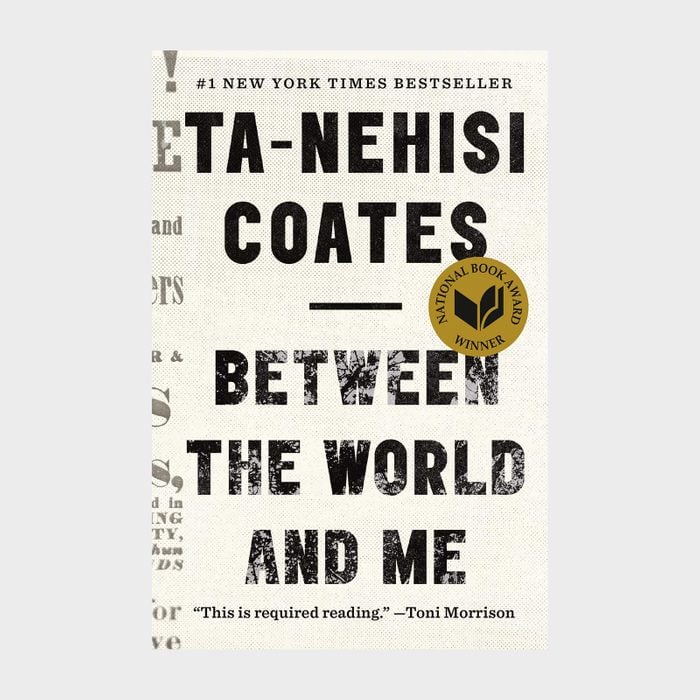
20. Between the World and Me by Ta-Nehisi Coates (2015)
At its most basic, Bet ween the Earth and Me is a letter of the alphabet to the writer'south adolescent son. But Coates's profound text goes across his own experiences about his place in the world as a Blackness human by eloquently weaving it with historical and current events as they relate to race. How can we reckon with this history—a history that was built on the suffering of others—and find a way forwards? Called "required reading" by Toni Morrison, Betw e en the World and Me was the winner of the National Book Award, a finalist for the Pulitzer Prize, and one of Time'south Best Nonfiction Books of the Decade. It's an essential book about race relations in America, and one everyone ought to read.
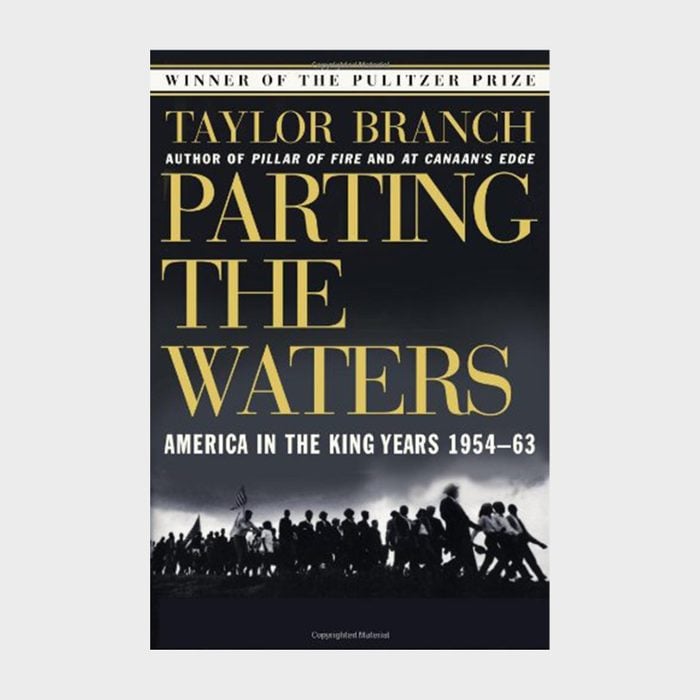
21. Departing the Waters: America in the King Years, 1954–63 by Taylor Branch (1988)
Winner of the Pulitzer Prize and the National Book Critics Circle Laurels, this is the kickoff of 3 volumes past Co-operative. It details the early on years of Martin Luther King Jr. and his rising to greatness as a leader of the Civil Rights Movement. But it's more a biography of Male monarch; it's a civil rights history of the United States, starting with Chocolate-brown v. Board of Educ ation in 1954 and catastrophe with John F. Kennedy's assassination in 1963. Branch profiles the fundamental players (Rosa Parks, Medgar Evers, J. Edgar Hoover) and events (the Freedom Rides, King's "I Have a Dream" speech, the bombing of the Birmingham Baptist church) that came together to course the basis of a motility that nevertheless carries on today. While everyone knows who Martin Luther King Jr. was, here are some other important Black Americans you probably didn't learn about in history class.
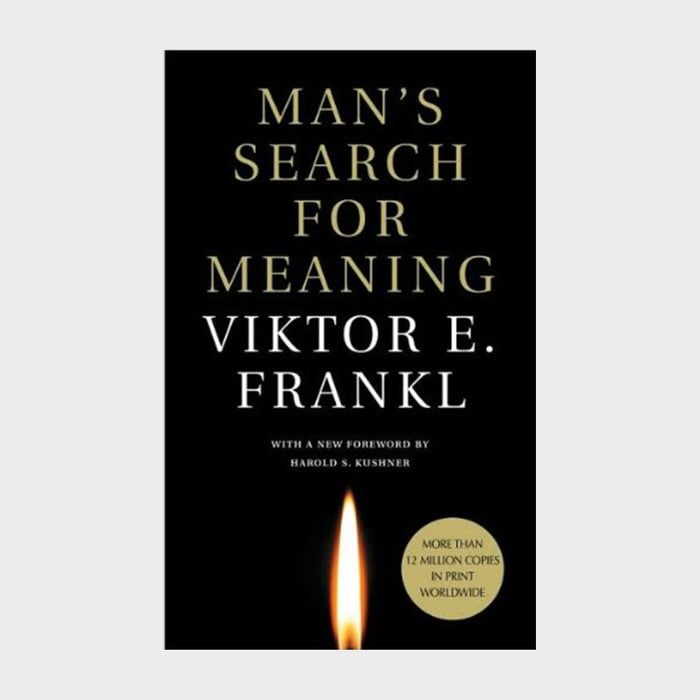
22. Man's Search for Meaning by Viktor East. Frankl (1946)
During his years imprisoned in Nazi concentration camps, psychiatrist Viktor E. Frankl developed the field of logotherapy that gave us Human being'south Search for Meaning. Part memoir, office psychological treatise, this volume and its reflections on humans' purpose and drive are crucial parts of 20th-century literary thought. Despite its devastating subject affair, Human'south Search for Significant is hopeful at its core. Hither are other valuable Holocaust books you should add together to your reading library.
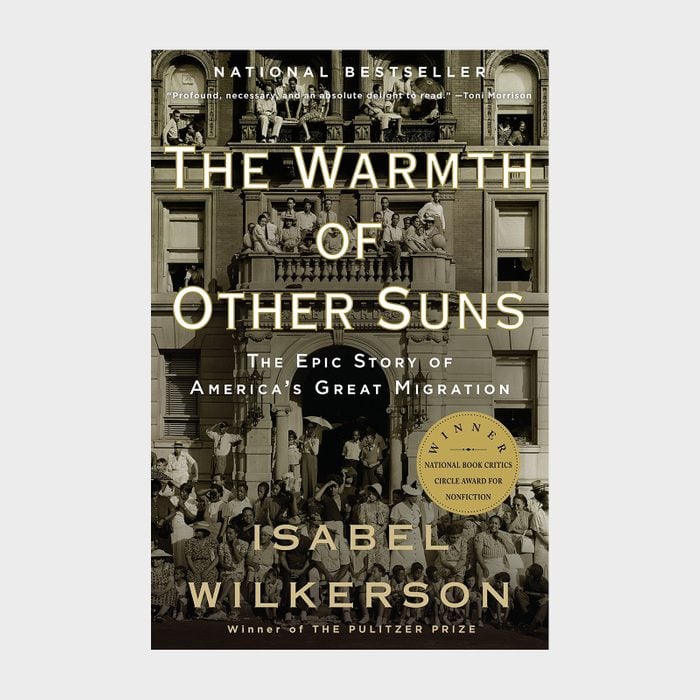
23. The Warmth of Other Suns: The Epic Story of America's Dandy Migration by Isabel Wilkerson (2010)
Like many of the authors on this list, Isabel Wilkerson, a Pulitzer Prize–winning journalist, is a talented researcher with a gift for storytelling. Her 2020 book, Degree: The Origins of Our Discontents, was an Oprah's Book Club option and a number one New York Times best seller. But her truthful masterpiece is The Warmth of Other Suns, which won the National Volume Critics Circle Award and was named on several all-time-of-the-year lists. For the book, Wilkerson interviewed more than a thousand families to find three that represented the untold story of the decades-long migration of nearly six million Blackness Americans out of the Southward in search of a better life. She beautifully captures their cross-land trips and how they ready in their new cities, bringing with them Southern food, faith, music, and culture. Wilkerson asks: Were the people who left the S meliorate off for having left?
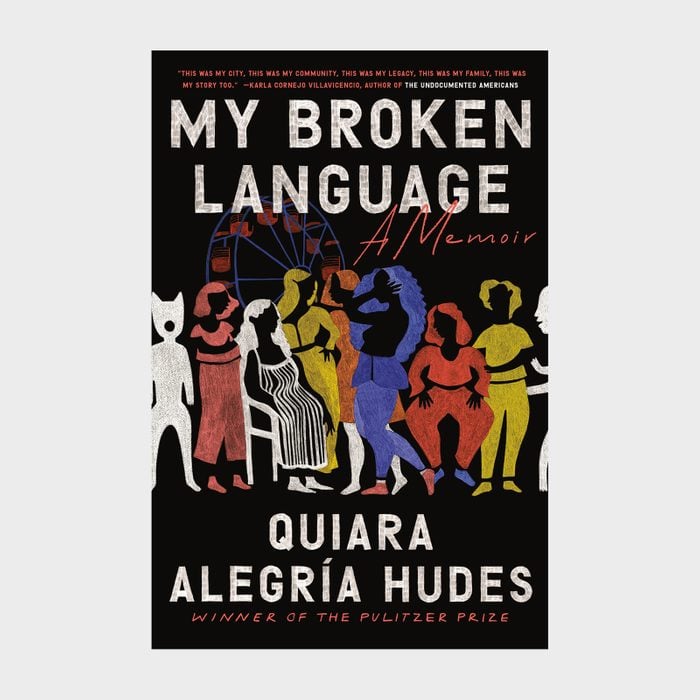
24. My Broken Language: A Memoir by Quiara Alegría Hudes (2022)
If yous like your nonfiction books to exist vibrant and filled with poetic language, then look no further than the Pulitzer Prize–winning My Broken Language. Hudes, the screenwriter behind the film In the Heights, works magic with language in this memoir. She describes struggling with her identity while growing up with her Puerto Rican family unit in Philadelphia. Information technology'south a powerful improver to the catalog of books by Latinx authors.
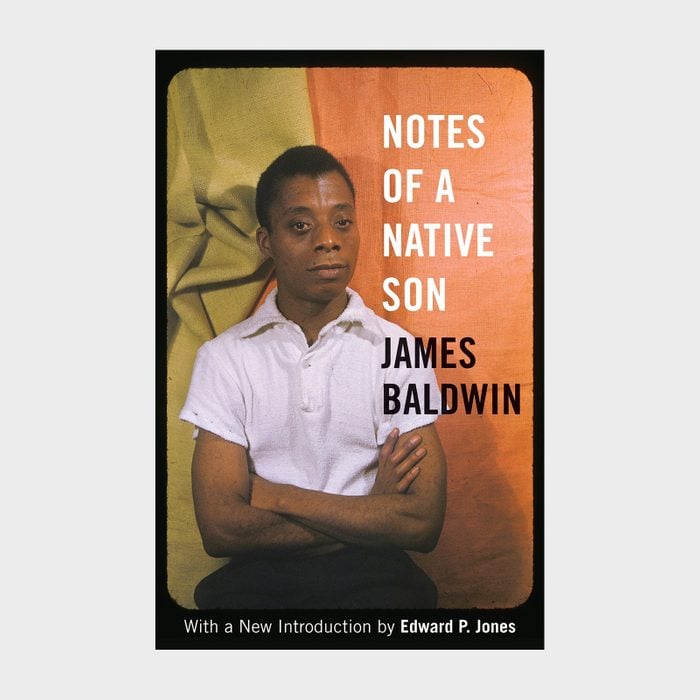
25. Notes of a Native Son by James Baldwin (1955)
This compilation of previously published essays from the 1940s and 1950s also landed on The Guardian's and Time'due south lists of the all-time nonfiction books of all time. The essays explore what it means to exist Black in America, touching on Baldwin's life in both Harlem and in Europe. Though written at the dawn of the Civil Rights Motion, his observations are still pertinent today. Baldwin was "one of the leading interpreters of the dramatic social changes erupting in the U.s. in the 20th century, and many of his observations have proven almost prophetic," according to the publisher of a recent edition. Another volume by Baldwin is considered one of the nigh controversial of all time.
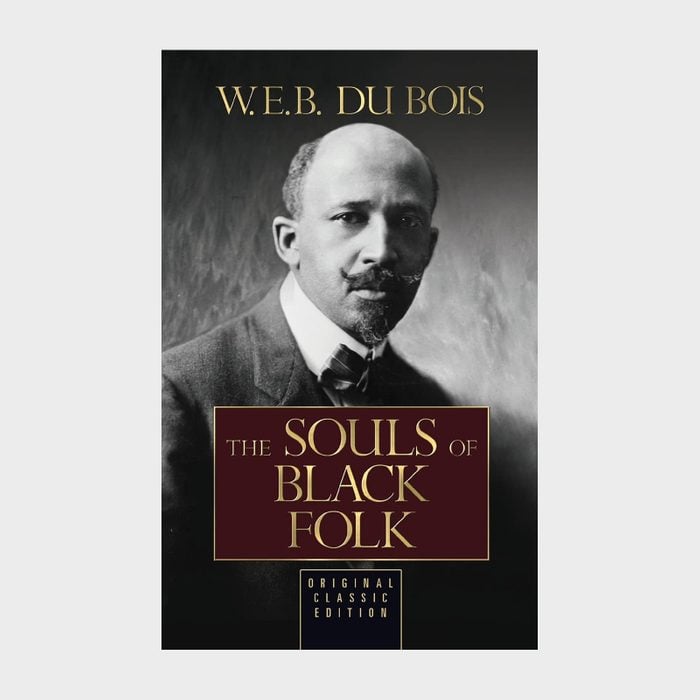
26. The Souls of Blackness Folk by W.E.B. Du Bois (1903)
Du Bois was a civil rights activist, sociologist, historian, and 1 of the founders of the NAACP. In The Souls of Black Folk, he focused on the experiences of Black Americans under the post-Reconstruction Jim Crow "color line," which suggested that one's skin colour dictated which part of the railroad train they could sit in or which water fountain they could potable from. Du Bois also explored the concept of "double consciousness," in which he suggested that Blackness Americans must be aware of themselves both every bit to how their families and communities view them but also equally how White America sees them, and he touches on how one carries on when the world looks at you with this double standard. This text is every bit critical today every bit when Du Bois wrote information technology at the turn of the 20th century.
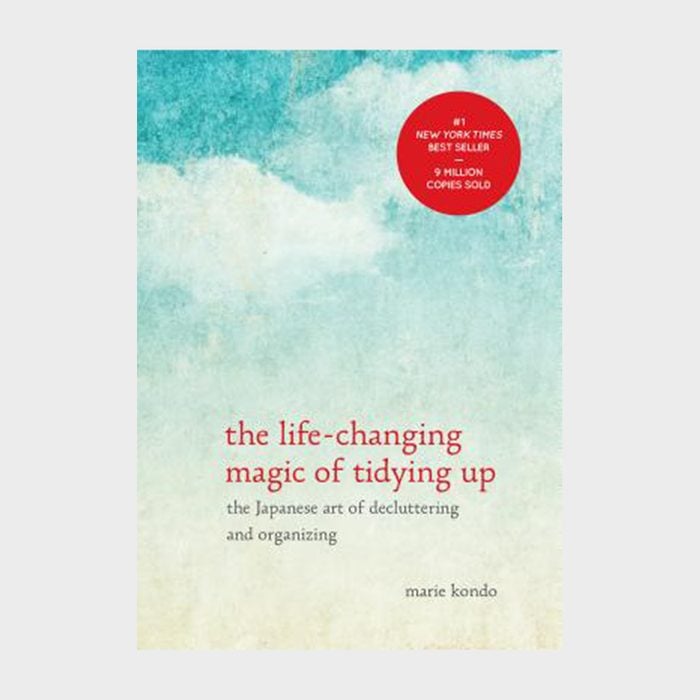
27. The Life-Changing Magic of Tidying Upward: The Japanese Art of Decluttering and Organizing past Marie Kondo (2010)
You've heard of it; now it'southward time to requite it a try. If yous ignored theTidying Up with Marie Kondocraze that swept pop culture in 2019, at present might exist the time to see what all the fuss is about. The book, which came out before the show, is a powerhouse cocky-help book about how prioritizing your "stuff" can modify your life and your outlook on how you use your space. Information technology fueled a move across the globe through its groundbreaking simplicity.
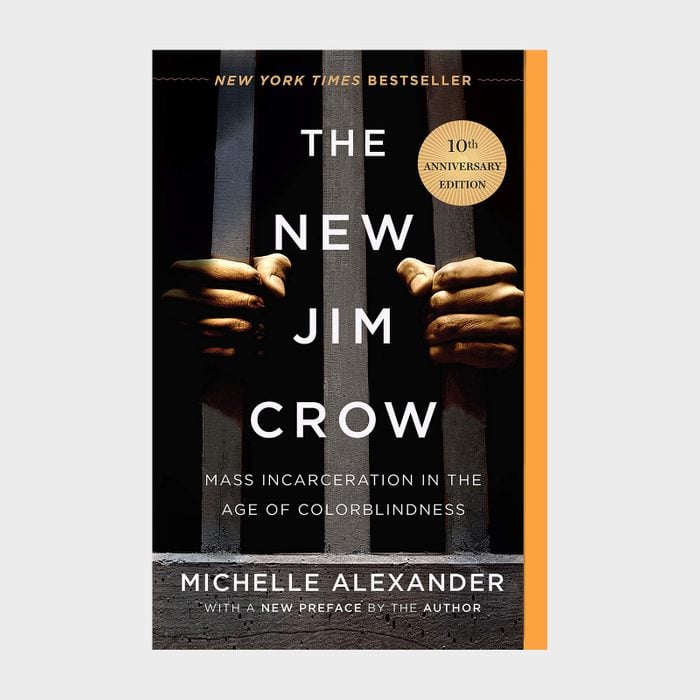
28. The New Jim Crow: Mass Incarceration in the Age of Colorblindness past Michelle Alexander (2010)
This New York Times best seller, which spent nigh 250 weeks on the list, was named one of the best books of the 21st century by Slate and the Chronicle of College Educational activity and won the NAACP Prototype Laurels in 2011. Information technology too helped inspire the Marshall Project, a nonprofit news organisation defended to the U.South. criminal justice organization. The book looks at the justice system as a course of racial command that ravages communities of colour—and the crises faced past these communities equally a consequence of mass incarceration and institutional racism. Equally Alexander writes, it'southward no longer permissible to use race every bit a justification for bigotry, but by using the criminal justice system to label people of color as criminals, it's "perfectly legal" to discriminate against them. The 10th-ceremony edition contains an update by the author that looks at the state of criminal justice reform today.

29. The Right Stuff by Tom Wolfe (1979)
Credited as a founder of New Journalism, Wolfe married traditional journalism—the reporting of facts—with the narrative elements typically constitute in novels and other fiction writing. In The Correct Stuff, he recounts the U.s.'s outset homo spaceflight program, Projection Mercury, from the 7 astronauts' perspectives. By focusing on the lives of the "Mercury Seven," we glimpse not just the dangers of their mission but besides the tolls that the Infinite Race took on families. The winner of the National Volume Award in 1980 and a finalist for the National Book Critics Circle Award, this book was made into a motion moving picture and remains one of the most compelling stories of our endeavor to leave Earth. Here are more books that were made into hit movies.
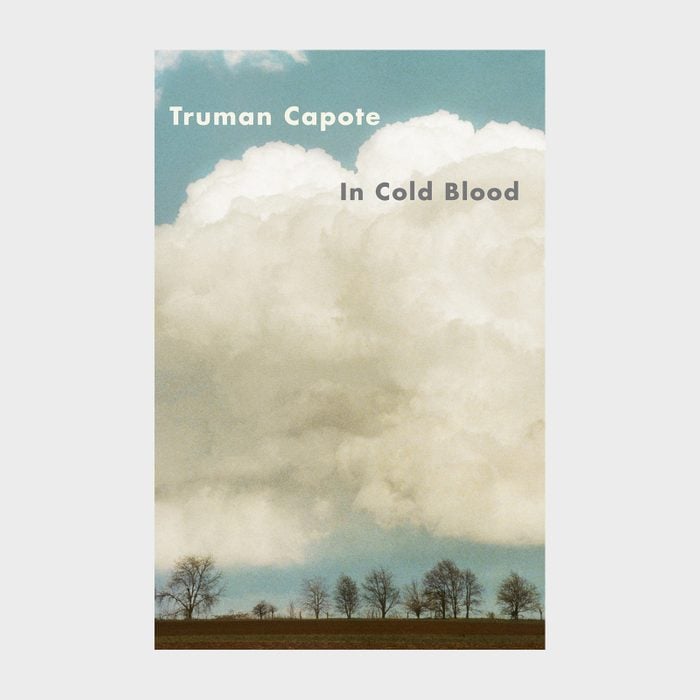
xxx. In Cold Blood past Truman Capote (1965)
Capote's stark examination of a brutal quadruple murder from the 1950s is a seminal truthful criminal offence book, an essential read for anyone interested in the genre. This genre-breaking "nonfiction novel" from the author of Breakfast at Tiffany'due south tells the true tale of the Clutter family unit murders and the subsequent trial and execution of the 2 perpetrators. In improver to retelling the facts of the story, Capote brings to life the emotional turmoil of the residents in the pocket-sized Kansas boondocks where the murders took place and paints empathy for the men who committed them. Capote was one of the pioneers of this form of narrative, or literary, nonfiction—what was called New Journalism. Originally serialized in The New Yorker, In Cold Blood was nominated for the Pulitzer Prize in 1966 and was later fabricated into a film of the aforementioned name.
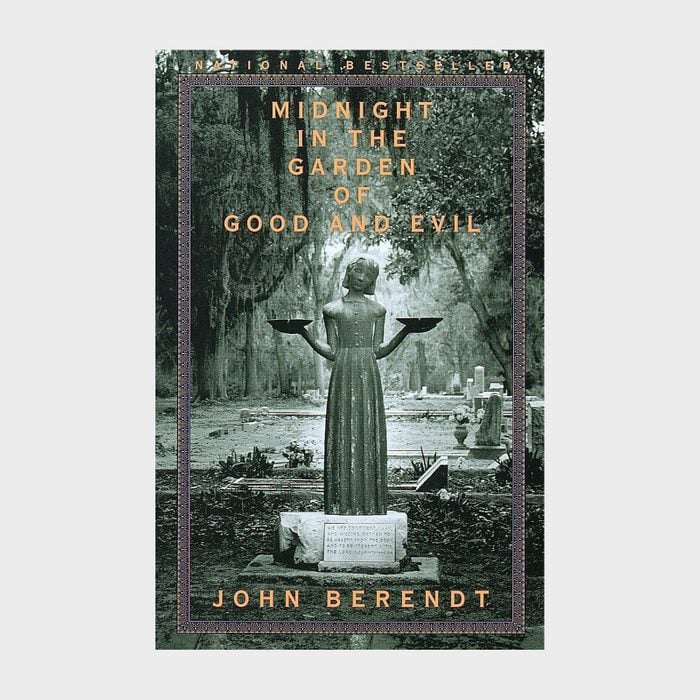
31. Midnight in the Garden of Good and Evil by John Berendt (1994)
This engaging and beautifully written book tells the story of a murder in Savannah, Georgia. Or was information technology self-defence force? Unraveling the mystery involves a rich tapestry, ripe with eccentric characters. There'southward the genteel new-money antique dealer and the redneck boy toy at the center of the tale, the potty-mouthed transgender performer, a voodoo priestess, the society ladies of the Married Woman'south Menu Gild, and a bulldog named Uga. Steeped in tradition, with gorgeously painted scenic beauty making Savannah its own character, the book was a finalist for the Pulitzer Prize that was later on fabricated into a move film.
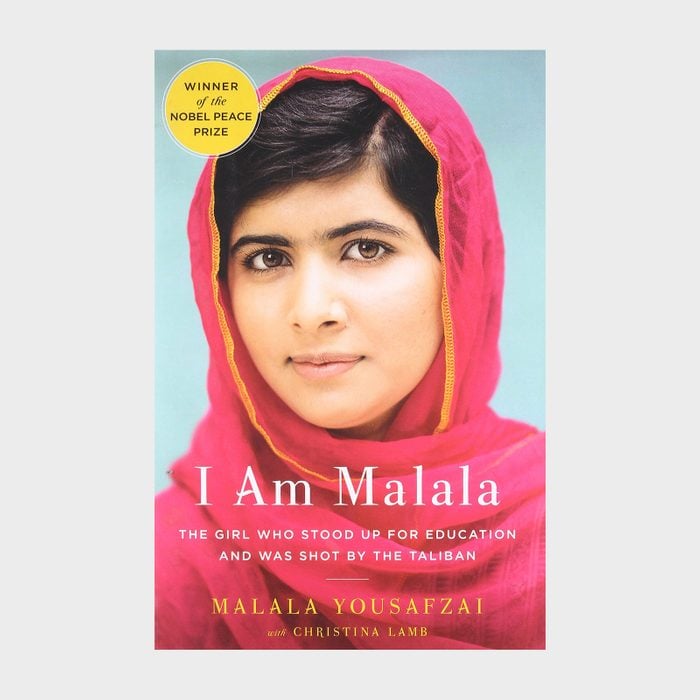
32. I Am Malala: The Girl Who Stood Up for Education and Was Shot by the Taliban past Malala Yousafzai (2013)
Fifty-fifty more essential at present that the Taliban is dorsum in control of Afghanistan, Malala'south story is a must-read for book lovers of all ages and is particularly empowering for teens. You'll find a young readers' version aimed at teens and tweens as a well as a chapter book edition for even younger readers. The Nobel Peace Prize–winning activist tells her own story, from babyhood to the volume'south publication, in one of the best autobiographies of all time.
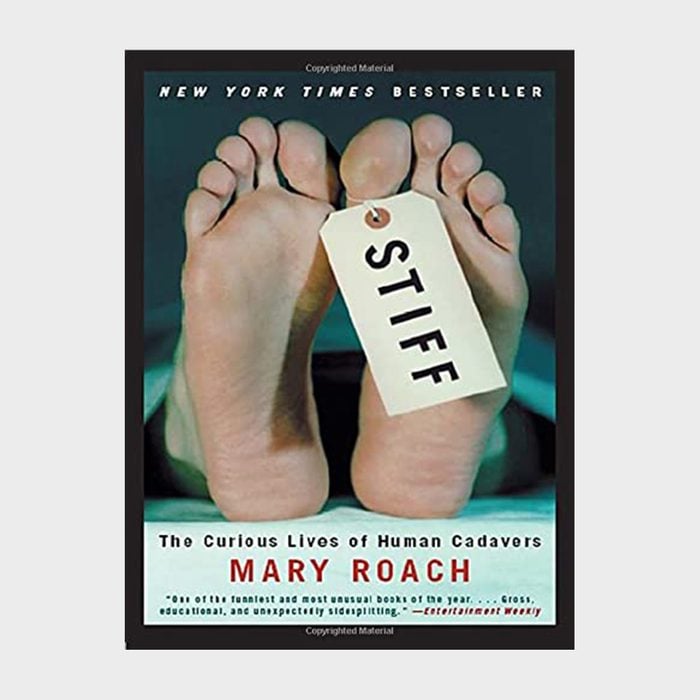
33. Stiff: The Curious Lives of Human Cadavers by Mary Roach (2003)
This often-hilarious tale of what happens in the "life" of a human cadaver is a compelling read. Roach'south storytelling leads us through the centuries and how cadavers have been a office of not only major medical advancements (such as center transplants) but scientific discoveries as well (via a trip aboard a space shuttle). Cadavers have been used every bit crash-test dummies, and they've helped respond the mysteries of airplane crashes. Roach, a science and humor writer, moves beyond the "ew" and makes this curious New York Times best seller well worth the read. If you enjoy humor writing, requite some of these funniest books of all time a whirl.

34. The Shallows: What the Internet Is Doing to Our Brains past Nicholas Carr (2010)
The Shallows asks the question on everybody'south minds: Every bit we embrace the Cyberspace, what do we sacrifice intellectually? Carr provides compelling enquiry that shows how the Internet is rewiring our brains, affecting how we communicate, socialize, and remember. We recollect we're in command … just are nosotros? "We're too busy being dazzled or disturbed past the programming to notice what's going on inside our heads," he writes. A finalist for the Pulitzer Prize and a New York Times best seller, this tenth-anniversary updated edition includes a new afterword that examines the effects of social media and smartphones on our cognitive and behavioral health.
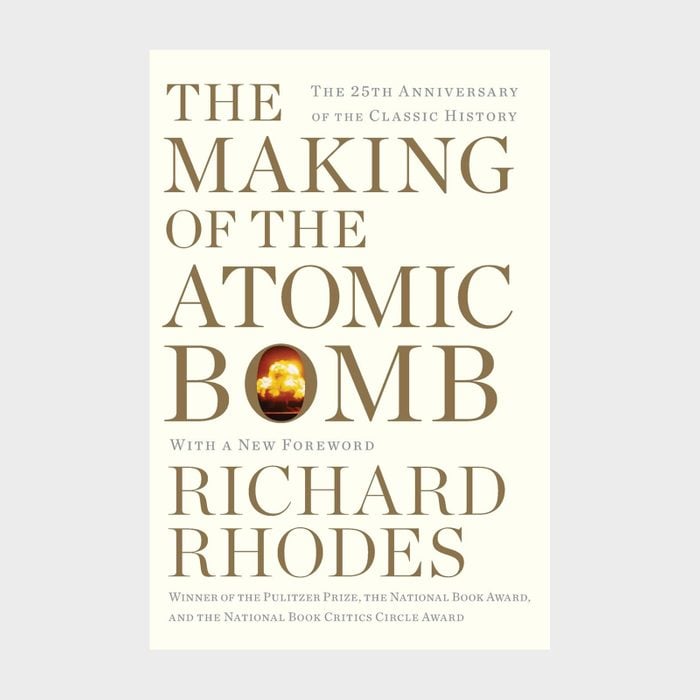
35. The Making of the Atomic Bomb by Richard Rhodes (1986)
This sweeping literary account of the diminutive bomb—from the discovery of nuclear fission through the conception of the weapon with the Manhattan Project to the devastating horrors of Hiroshima and Nagasaki—won the National Volume Award, National Book Critics Circle Award, and the Pulitzer Prize. Though written like a suspense novel, this mesmerizing history of nuclear weapons yet resonates 35 years afterward it was first published. Adjacent, learn nigh the man who survived both atomic blasts—and lived to exist 93.
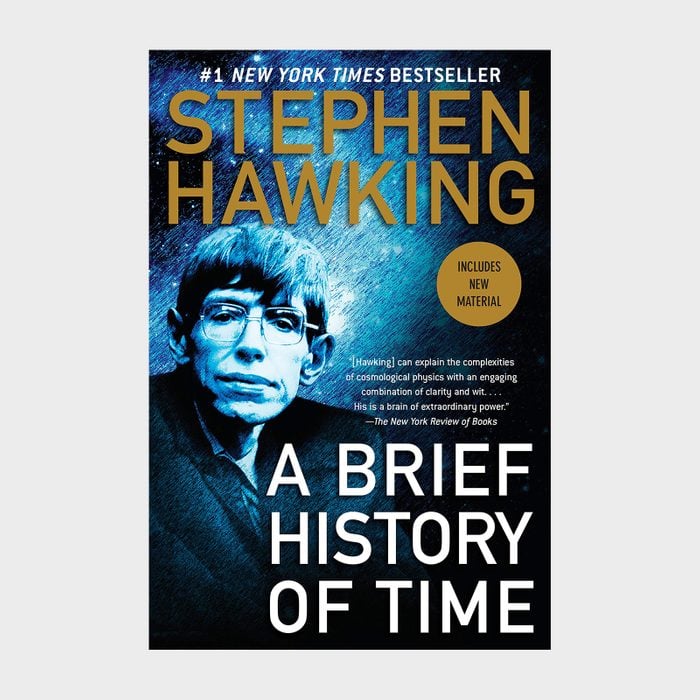
36. A Brief History of Fourth dimension past Stephen Hawking (1988)
Hawking's prose is accessible and gripping, and it reads as if you're talking to your favorite physics professor. He asks (and answers) questions like: Where did the universe come from? Did it have a beginning, and if so, what came before? What is the nature of fourth dimension, and will it ever come to an end? It was a number ane New York Times best seller and a presence on the London Dominicus Times all-time seller listing for 237 weeks. In the edition published in 2017 (the year before his expiry), Hawking updates topics that "underpin some of [his] proudest accomplishments as a physicist."
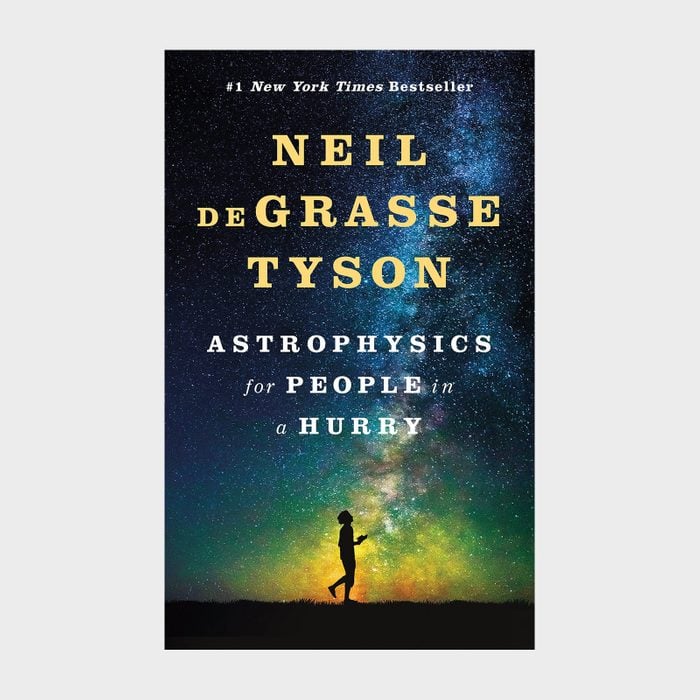
37. Astrophysics for People in a Hurry by Neil deGrasse Tyson (2017)
From America'south love astrophysicist comes this number 1 New York Times all-time seller, which spent more than a year on the list and sold more than 1 one thousand thousand copies. Science frequently makes the headlines, but practice you lot know what the discoveries really mean? Can you talk near black holes, breakthrough mechanics, and whether life exists exterior our own planet? With this championship, broken down into manageable chapters that you tin read and digest just nearly anywhere, you'll know what those catholic headlines mean and "be culturally conversant" in Tyson's field—so much then that you may even desire to read more. Tyson's engaging tone is what's made him both a regular presence on late-night idiot box and a friend of Sesame Street'due south lovable characters.
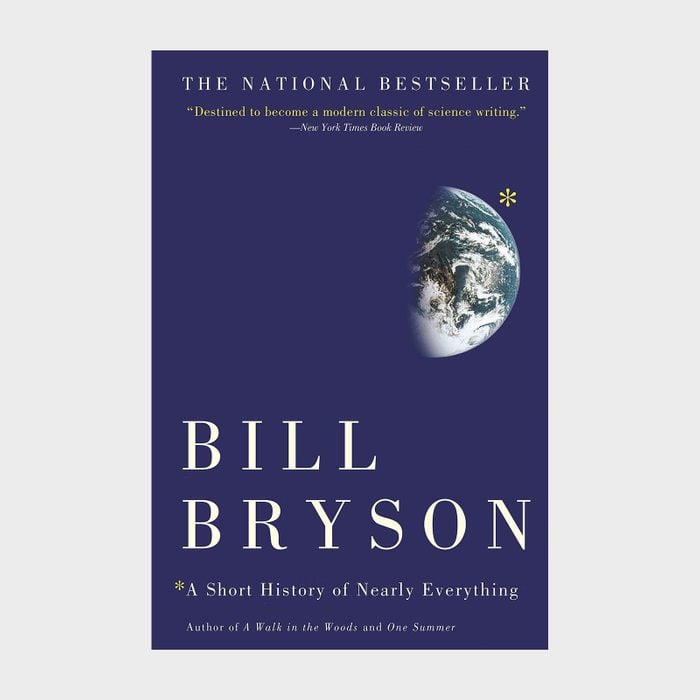
38. A Short History of Virtually Everything by Bill Bryson (2003)
For a more humorous answer to how nosotros got hither, there's Bill Bryson. The prolific, best-selling author—who has written nearly travel and nature (A Walk in the Woods), his own life (The Life and Times of the Thunderbolt Kid), and linguistic communication (The Female parent Tongue: English and How It Got That Way)—is known for his entertaining takes on every topic he tackles. In A Short History of Nearly Everything, Bryson attempts to empathise the universe, starting with the Big Bang and moving through the rise of civilization (and the congruent extinction of several animal species), by interviewing the world's top scientists in his characteristically charming way.
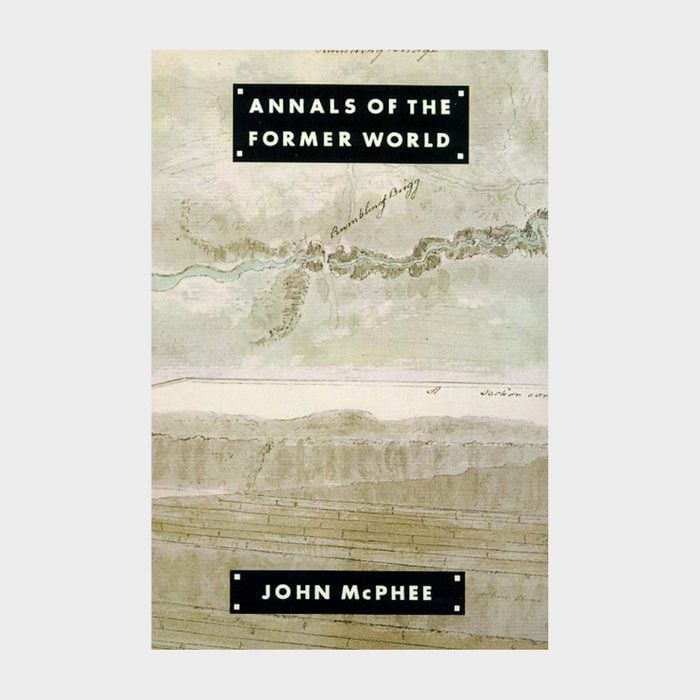
39. Annals of the Former World by John McPhee (1998)
Winner of the Pulitzer Prize, this compilation of four previously published works includes xx,000 new words. The conceit is simple: For one yr, McPhee, accompanied by geologists, journeyed across the United states at about the 40th parallel. The consequence is an unparalleled geology primer of North America, plate tectonics (what it is and who figured it out), different geologic eras, the tensions betwixt geological discovery and environmental preservation, and the geologists themselves. Written by one of our most revered and prolific writers, Annals is as sweeping a narrative as the topic it covers.
40. Finding Winnie: The Truthful Story of the World's Most Famous Bear by Lindsay Mattick (2015)
You've certainly heard of Winnie-the-Pooh, simply did y'all know that this grapheme was based on a real comport? Young fans of the silly old bear (and their parents) volition exist fascinated by this 2015 nonfiction book for kids written by the great-granddaughter of Harry Colebourn, the man who originally "establish Winnie." Colebourn, a soldier in World War I, bought a conduct cub off a hunter and donated her to the London Zoo, where she'd be discovered by a young male child named Christoper and his father, A. A. Milne.
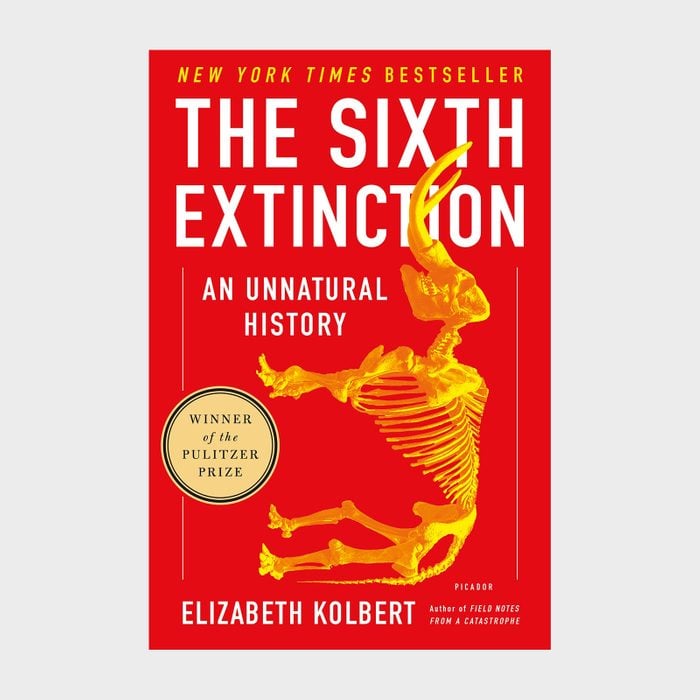
41. The 6th Extinction: An Unnatural History by Elizabeth Kolbert (2014)
In that location have been five mass extinctions on Earth in the past half-billion years, which caused the diversity of life to plummet. (Looking at yous, asteroid that wiped out the dinosaurs.) Scientists are monitoring the next great extinction, and we're the calamity. Kolbert, a staff writer for The New Yorker, blends elegant writing with hard research into a compelling and entertaining read; each affiliate examines an extinct species and how we learned well-nigh it, or a declining ecosystem where die-off is currently happening. Winner of the Pulitzer Prize, a finalist for the National Volume Critics Circle Award, and one of the New York Times Book Re view's Best Books of the Year, The Sixth Extinction makes united states of america look at the disappearances happening right before us—and consider our lasting legacy.
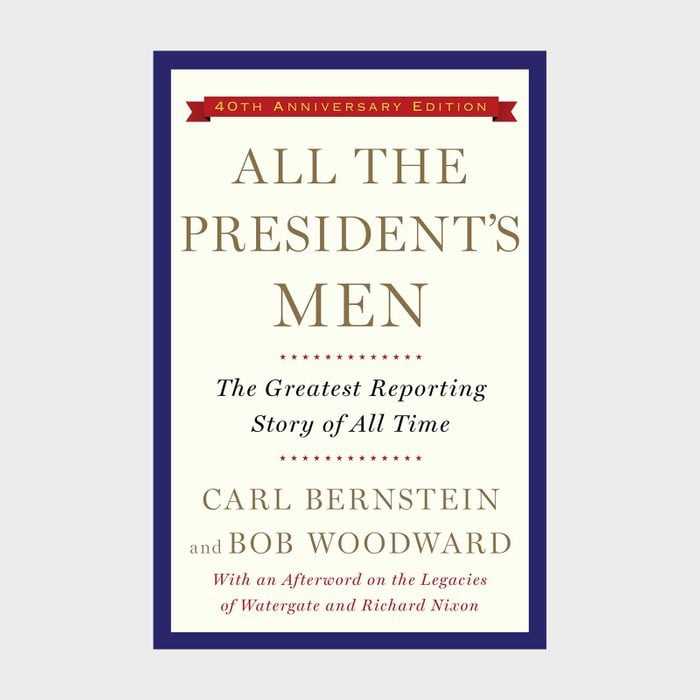
42. All the President'southward Men: The Greatest Reporting Story of All Time past Carl Bernstein and Bob Woodward (1974)
The exposé on the Watergate scandal and President Nixon's part in it earned the authors, both Washington Post reporters, a Pulitzer Prize in journalismin 1973. This book, named one of Time mag'southward 100 all-time nonfiction books of all fourth dimension, went across the headlines, introducing readers to the "Deep Throat" informant and other backside-the-scenes aspects of their investigative journalism. Engagingly written, the 40th-anniversary edition includes an afterword on the legacy of Watergate, which is equally pressing in our current political climate every bit ever. Part detective story, role political thriller, this volume inspired a generation of journalists.
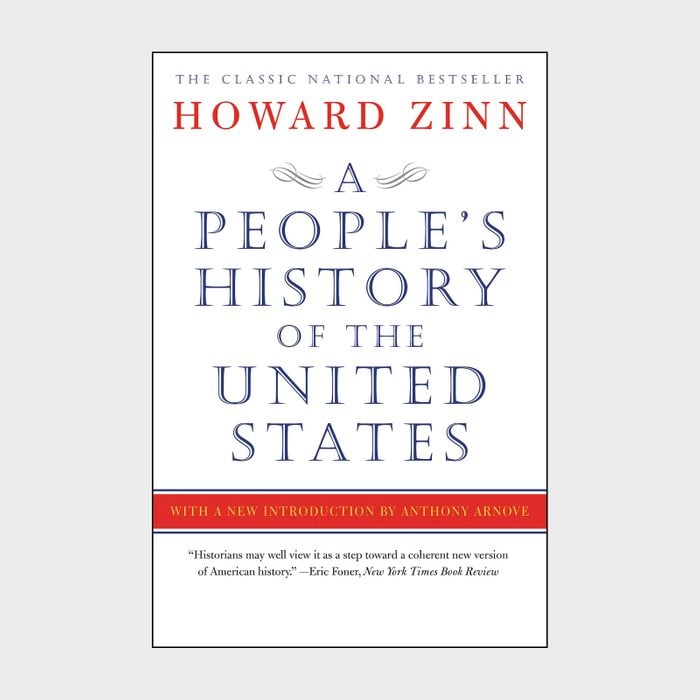
43. A People'south History of the United States by Howard Zinn (1980)
Zinn undertook the monumental job of rewriting the "official" history that's been taught in schools: the history of the wars, the presidents, and the victors. Instead, he presents history from the eyes of the underdogs—the Native Americans, enslaved people, laborers, immigrants, and women—starting with the landing of Columbus and catastrophe, in the latest edition, with President Clinton'southward first term in role. A finalist for the National Book Accolade, it has sold nearly v million copies since its publication and has been heralded as essential reading for every American. If you beloved history, these are the best podcasts to listen to right now.
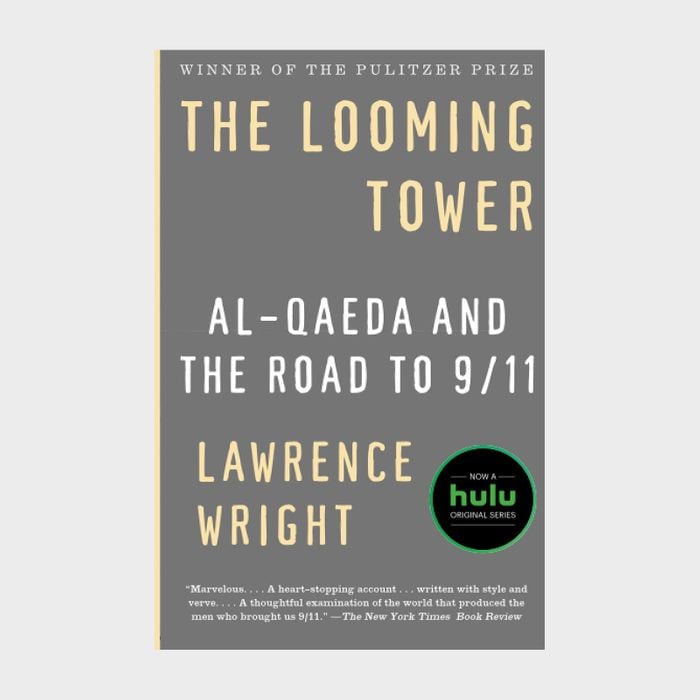
44. The Looming Tower: Al-Qaeda and the Road to 9/11 past Lawrence Wright (2006)
Information technology'due south been 20 years since the events of 9/11, and questions remain. Many books have been written in the aftermath, but Wright's Pulitzer-winning business relationship uncovers the five decades preceding the attack. He explains in sweeping particular the growth of Islamic fundamentalism, the rising of al-Qaeda and Osama bin Laden, and where our own intelligence failed to forestall the attacks. The book was a finalist for the National Book Award and was named 1 of Fourth dimension magazine's all-time books of all time, and it's the basis of a Hulu television series of the same name.
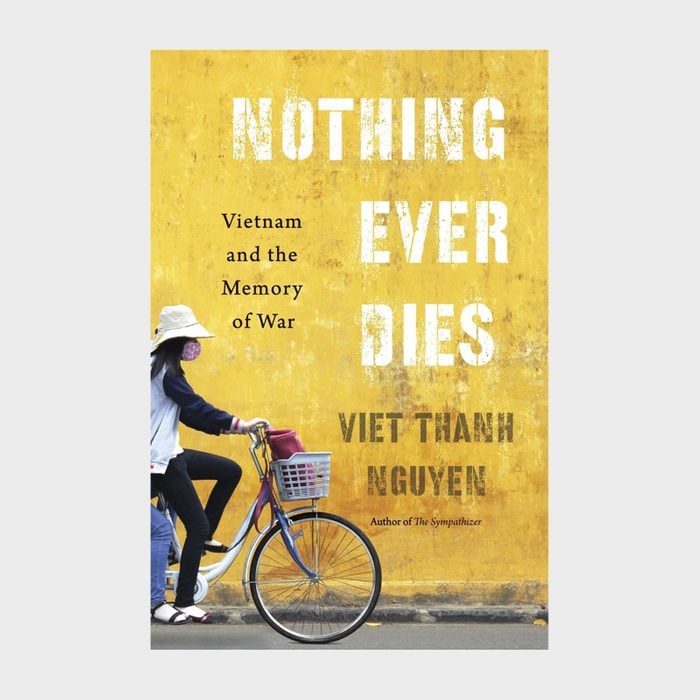
45. Naught Ever Dies: Vietnam and the Retentiveness of State of war by Viet Thanh Nguyen (2016)
Written by a Vietnamese-built-in, American-raised novelist, this finalist for the National Volume Critics Circumvolve Accolade and the National Book Laurels asserts that "all wars are fought twice, the first time on the battlefield, the 2nd time in memory." The naming divergence lonely—the Vietnam War to us in the United States and the American State of war to those in Vietnam—shows how the war will be known and remembered. It's a compelling look at how we remember the dead and how we remember the living and what they did during the war.
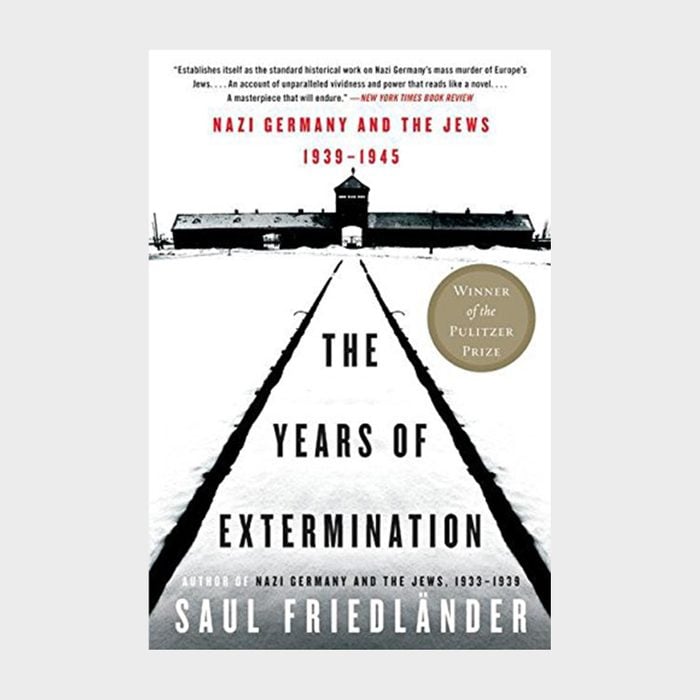
46. The Years of Extermination: Nazi Germany and the Jews, 1939–1945 by Saul Friedländer (2007)
As a follow-upward to Friedländer's 1997 volume, Nazi Frg and the Jews: Volume 1, this Pulitzer Prize winner follows the trajectory of Jewish persecution and relocation to its terrible conclusion. Together, the two books form "the standard historical work on Nazi Germany's mass murder of Europe's Jews," according to the New York Times. In this second volume, Friedländer weaves historical accounts of the war with hundreds of witness testimonies, diary entries (including those of Anne Frank), messages, and postwar trial transcripts. Friedländer, who was born in Prague simply spent his boyhood in Nazi-occupied French republic, lays the blame squarely on the shoulders of Adolf Hitler, but he also touches on those who served him as well as the countries and leaders who resisted (and those who remained appallingly silent). This sweeping account reads like a novel, but it gets at the centre of this night subject.
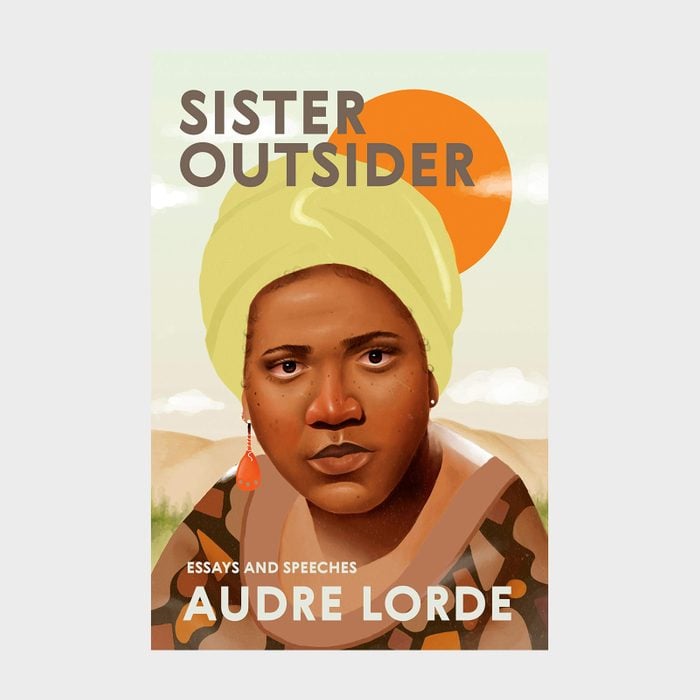
47. Sister Outsider past Audre Lorde (1984)
In 15 essays, Black lesbian poet Audre Lorde powerfully addresses a range of important subjects, from sexuality to class to law violence. Much of its subject matter feels then at home in the chat effectually today'southward racial reckoning that it tin can be like shooting fish in a barrel to forget it was first published in 1984. It defies being labeled with a unmarried identity or event; it'southward a crucial LGBTQ+ volume about Black womanhood, the call to action, and more than.
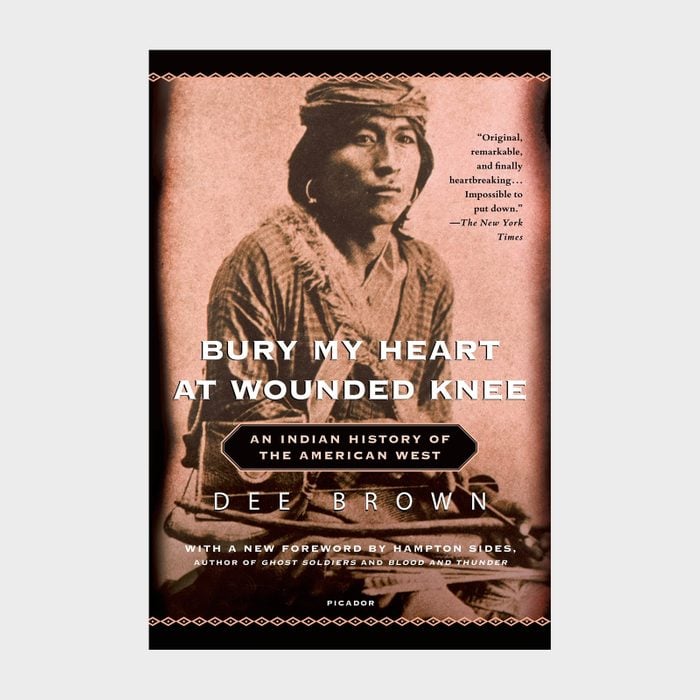
48. Bury My Middle at Wounded Knee: An Indian History of the American W by Dee Brown (1970)
In this heartbreaking portrayal of how the W was "won," Brown tells the tale of those who "lost" it. He used council records and first-person accounts of the chiefs and warriors of several Native American tribes to describe the massacres and cleaved treaties their people endured. Published in 1970, shortly after the horrors of the My Lai massacre in Vietnam shocked the nation, Bury My Heart brought home the "nighttime roots of American arrogance." Brown reveals how the U.South. government lied and manipulated to take Native lands and emphasizes that Native Americans are anything only the "savages" depicted in Westerns. Called "impossible to put down" past the New York Times and named one of the 100 best books of all time by Fourth dimension, information technology has sold nearly v meg copies. After seeing the ongoing struggle for sovereignty play out in the fight against the Line 3 pipeline, which would cutting through tribal lands, this book is as important equally ever.
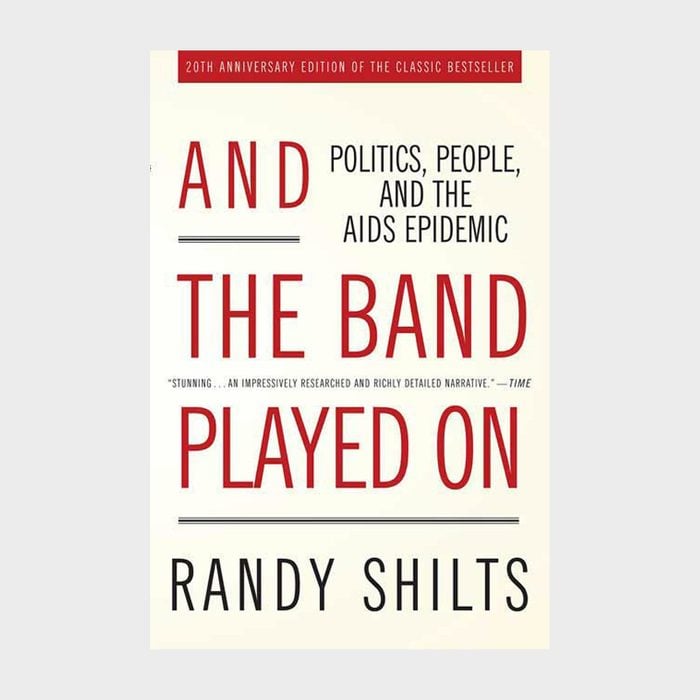
49. And the Band Played On: Politics, People, and the AIDS Epidemic by Randy Shilts (1987)
An international all-time seller and a finalist for the National Book Critics Circle Honor, Shilts' story of the dawn of the AIDS epidemic is a shocking look at how the stigmatized virus was left unchecked to spread, with no safeguard for public wellness. It details the tragic irony that by the time America paid attention, it was already too late. In a thoroughly researched and compelling narrative, Shilts describes the discovery of the disease, patient nothing, and the race to tame this looming threat. In talking about the virus, Shilts could have been speaking about the electric current pandemic: "There were the first glimmers of sensation that the future would ever contain this foreign new word. AIDS would become a role of American civilization and indelibly change the grade of our lives."

50. Eats, Shoots, and Leaves: The Nothing-Tolerance Approach to Punctuation by Lynne Truss (2003)
This New York Times all-time seller is more than just a grammar book. It's a humorous and historical proclamation that proper punctuation matters. The title stems from a joke about a panda, which eats shoots and leaves—except with a misplaced comma, as in the title, the panda'south actions tin can be misconstrued. And therein lies Truss's reasoning for standing up for punctuation: Without it, there's no reliable way of conveying meaning. Though we might not speak in commas, em dashes, and semicolons, proper punctuation tells united states of america how to read the aforementioned way sail music instructs a musician how to properly play a song. Earning a spot among the best nonfiction books, it's a must-read for grammar nerds as well as those who could use a little aid in that area. While yous wait for your copy to arrive, check out the nigh confusing grammar rules in English.
Originally Published: January 04, 2022
Best Non Fiction Must Reads for Men
Source: https://www.rd.com/list/best-nonfiction-books/
0 Response to "Best Non Fiction Must Reads for Men"
Post a Comment